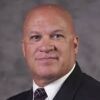The company officer (CO) in any fire department holds the keys to success for the organization. They are the bridge between upper management and crewmembers riding the trucks and responding to alarms. The CO is a working boss that will often perform two roles at once.
The position requires a person that can provide direction and enforce basic rules, while at the same time, serve as a mentor to young firefighters and an advisor to veteran members. The CO must possess the ability to perform task-level skills and have the capacity to serve as the incident commander at a multi- vehicle crash or a hazardous material incident. The knowledge and ability required is demanding and must be taken seriously if the CO is to master their role.
Understanding the interpersonal dynamics of your firefighters
Your crew will be made up of many different personalities, and how you interact with them and how they interact with each other is very important. Group dynamics come into play with any team, and it is easy to overlook small things that will help keep the group motivated and focused on the department mission. Crewmembers come from different backgrounds and may not have the same strengths and weaknesses as other members. As such, it’s the CO’s job to recognize this and determine how to capitalize on these to meet the mission, while keeping the crew motivated at the same time.
An example of this strategy might be a crewmember that was employed by a tree service before becoming a firefighter. This member has knowledge of small engine operation and fundamental loads, such as compression and tension, as well as the ability to think logically through a problem to find a solution. All of these are valuable as a firefighter; however, another crewmember may have never operated a chainsaw until hired with the department. The CO can utilize the first firefighter to assist in training others in the company while determining the strength of the second firefighter.
The CO should attempt to identify different behaviors of crewmembers, which allows them to better understand different personality types. After identifying personality types the company officer can use the information gained to build better teams, improve work skills and increase motivation within the crew. We all know that different personalities work better with some than others, so having a better understanding of the different behaviors most certainly helps when dealing with your crew.
Mastering task-level tools and equipment ups instructor creditability
Knowing the job of the firefighter takes time and energy. Training at the company level is often neglected, and firefighters may not receive the required training to perform their job proficiently. This deficit also extends to the CO, as many are not as proficient as they should be with task level tools. This was to be learned at the time they were firefighters and maintained as they became COs. If that is not the case, it’s time to own it and learn how to operate those tools. Firefighters need great instructors, not just good ones. Therefore, the CO must know what they are talking about to maintain instructor creditability. If you are not owning that, you must start now. Learn every tool so you are able to teach your crew how to operate it correctly and safely.
Company officers must earn the respect of their crew
Just like other positions of authority, company officers must earn the respect of those they command. Just because you scored well in the assessment and were promoted doesn’t mean respect is handed to you. Firefighters will test you to see if you have what it takes to be their leader. That challenge must be met head on, and there are four basic things must be in place already:
- You must be proactive in your approach to the position and be prepared.
- You should care about your crewmembers, not just as firefighters, but as individuals. Be concerned about their families and everyday lives beyond the firehouse; ask how they are doing and offer help if needed. They have hundreds of things going on in their lives other than just inspecting the fire engine at the start of the shift.
- Be fair across the board. Whatever the issue is, always be fair to the crew and organization. Make sure they understand that you are attempting to be as fair as possible in all your decisions.
- Lastly, inspire your crew; be the leader that encourages your team to explore new ideas, create new techniques to perform their job and prepare for the future, not only for the organization, but for their careers as well.
Company officers must take ownership of their responsibilities
The CO has taken on the responsibility of a group of people that they will have an enormous amount of influence on. With that, the CO must take ownership of everything that takes place on the job. If the crew cannot operate a certain tool at the scene, it is not their fault; it is the CO’s. If the driver has difficulty operating the pump of the engine at a fire, it is not the driver’s fault, it is the CO’s. This point is driven home in the book “Extreme Ownership” by Jocko Willink.
Willink writes that there are “no bad teams, only bad leaders.” This is hard for many company officers, as they believe that they are preparing their people, but then the crew fails in some way. You must understand that to build strong, high-performing teams, you must take ownership and true responsibility. Always strive to improve and be open to the fact that you are going to fail at some point. Nevertheless, you must not make excuses or place blame on others, but learn from the mistakes that were made and move forward. Own it, and master the job as the company officer.













